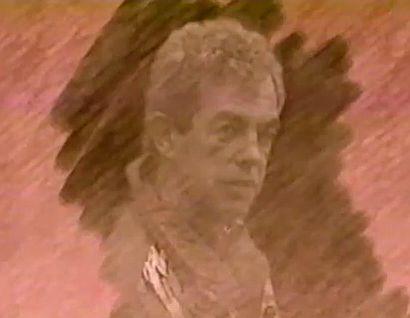
In March 1970, Bogataj, a 22-year old from the northern Slovenian town of Lesce, was competing at the Ski Flying World Championships in Obersdorf, Germany. As he was coming down the inrun, he tried to reduce his speed. However, he lost control and fell off the ramp at the transition curve just before the takeoff point. He flew into the air, nearly missing an official who had ducked to avoid him. He ripped off an “Obersdorf” banner, flipped around several times, and crashed, at full speed, into a bank of snow. He continued to flip on the ground, crashed through a retaining fence, and disappeared from view behind a group of spectators.
The ferocity of the crash stunned the audience. “Look at him go!” exclaimed the ABC Sports commentator. “Oh, baby! What a terrible fall!” The crash looked worse than it actually turned out to be. Even though Bogataj was taken away on a stretcher, he suffered only a mild concussion in the crash. At the hospital, he reportedly even asked to return to the hill.
What Bogataj couldn’t have imagined then is that his fall would become one of the most iconic images in the history of American television. A few months after the accident, the producers of Wide World of Sports, a hugely popular Saturday afternoon sports program on the ABC network, decided to feature his spectacular crash in their revised opening sequence. “Spanning the globe to bring you the constant variety of sport: The thrill of victory... and the agony of defeat,” intoned Jim McKay, the show’s commentator. And to illustrate defeat in its rawest form was the dramatic, unforgettable footage of Bogataj’s fall.
For more than a quarter century, American sports viewers would see Bogataj tumbling down in Obersdorf every Saturday. He eventually became not just the Slovenian most frequently seen on American television, but also a cultural icon – a likeable symbol of defeat in sports. American Comedian Rich Hall even invented a word – agonosis – with the following definition: “The syndrome of tuning into Wide World of Sports every Saturday just to watch the skier rack himself.”
Bogataj’s fall became so famous that ABC invited him to New York for the 20th anniversary of Wide World of Sports in 1981. At the ceremony, he was joined by major stars from the world of sports, from Joe Frazier and Nadia Comăneci to Muhammad Ali. But it was Bogataj who, much to his surprise, received the biggest ovation. (He was introduced by John McKay as a man who doesn’t even own a credit card.) Bogataj found himself besieged by autograph requests, including one from Muhammad Ali.
Not everyone was happy about Bogataj’s fame, however. The U.S. Ski Federation felt that the footage of the crash was scaring off young ski jumpers and filed a formal protest with ABC. Unmoved, ABC kept the fall in the opening sequence. (According to the website SkiJumpingUSA.com, “…the impact of this single video clip was to make it more difficult TO THIS DAY to recruit kids to even give [ski jumping] a try.”)
Back in Slovenia, Bogataj remained largely anonymous. Until his retirement in 2005, he worked in a Lesce factory. He maintained his passion for ski jumping, and even spent some time coaching Franci Petek, the 1991 Ski Jumping World Champion (and another Lesce native). In recent years, however, Bogataj has devoted most of his time to painting. He specializes in landscapes of Slovenia’s Gorenjska region.
He also made several more appearances on U.S. television, the most recent of which was an extensive profile of Bogataj produced by ABC in 1997, a year before Wide World of Sports finally went off the air. And in 2006, while exhibiting his art Pittsburgh, he was asked to throw out the ceremonial first pitch at a Pirates game.
Through it all, Bogataj has retained a sense of humor. When he was driving to one of his interviews with ABC, he had a minor traffic accident. Arriving late but unhurt, he greeted the crew by exclaiming, “Every time I’m on ABC, I crash.”
Jaka Bartolj


































































